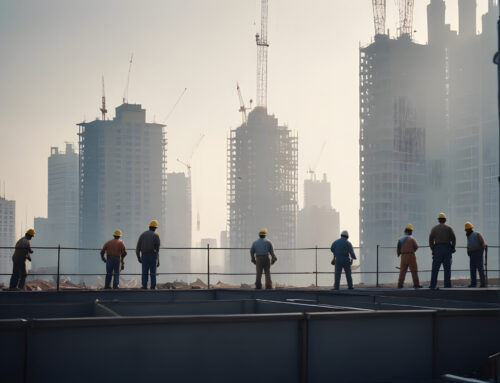By many measures, the construction industry is doing exceedingly well. In large part, this is thanks to a strong national economy that has continued to show year-over-year improvements for nearly a decade. Nearly 95% of large construction firms reported a profit last year.
But even with this good news, the construction industry still faces a number of challenges ahead. Business owners and contractors are having to think about how they can continue to leverage opportunities while preparing for potential hurdles in the not-so-distant future.
In this article, we will take a look at some of the likely challenges that the construction industry will soon face.
Possible Economic Slowdown
When business is doing so well it can be tough to think about how things could quickly change. Construction company owners and independent contractors have been flushed with work recently. And, as the population continues to grow, it is likely that residential and commercial projects will keep rolling in. That said, there has been growing speculation that a recession may soon be upon us. One good way to anticipate this is based on the amount of work that architects are currently managing. If their number of projects starts to decrease, chances are, in about six months the construction industry will begin to see that impact.
Staff and Labor Shortages
This is a problem that the construction industry has been facing for a few years now. A skilled labor shortage means that companies need to offer higher salaries and creative benefits if they are going to attract and retain top talent. It also means that competitor companies are likely to try and poach employees from one another. The costs associated with filling an empty position and training a new employee can be devastating. In order to combat this, construction companies should look at strategies that can increase retention rates. You should also be considering training programs, as it is likely that you will need to hire someone with less experience to fill an open position.
Rising Taxes and Tariffs
Construction costs have continued to increase over the past couple of years, in part due to rising tariffs. To help mitigate some of these costs, it would be wise to add a 2-3% escalation clause to long-term projects. There are also international relations to consider. For example, the trade war with China could have a significant impact on the cost of materials. Again, this is an expense that can – and should – be passed onto the client, however, it first needs to be anticipated.
Every industry faces its own unique challenges. By anticipating and preparing for these challenges, construction companies can prepare for the future and strengthen their current position.
Photo by Jukan Tateisi on Unsplash









